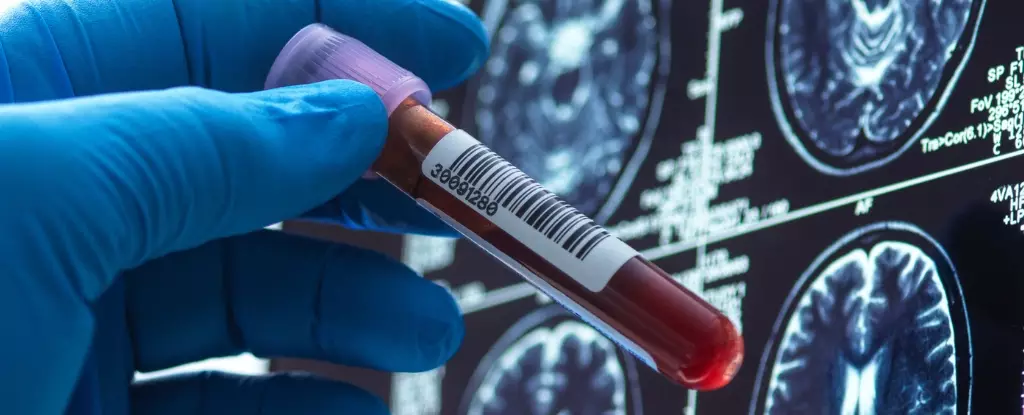For decades, Alzheimer’s disease has been a relentless, often devastating chapter in the narrative of aging, with scientists and families alike desperate for breakthroughs. Recently, however, a handful of groundbreaking developments signal that we may be on the cusp of meaningful change. Two novel drugs, donanemab and lecanemab, have shown promise in slowing disease progression, providing a new sense of hope for patients and caregivers. Nonetheless, their modest efficacy coupled with significant risks has sparked a heated debate, highlighting the complex, often contradictory landscape of Alzheimer’s treatment.
These therapies represent a crucial milestone, being the first to demonstrate tangible slowing of cognitive decline in early-stage patients. Yet, they are far from cures. Their high costs, narrow window of effectiveness, and potential for severe side effects like brain hemorrhages create ethical and practical dilemmas. Governments and regulators worldwide are grappling with how to balance these factors—permitting access in some regions while withholding reimbursement in others—underscoring the disparity in healthcare priorities and economic considerations. Consequently, the prospect of these drugs transforming the disease’s trajectory remains uncertain, posing more questions than definitive answers about their real-world impact.
Diagnostic Innovations: Can a Simple Blood Test Replace Invasive Procedures?
Alongside treatment advancements, diagnostic techniques are also evolving. Historically, diagnosing Alzheimer’s has been an arduous process, often relying on invasive lumbar punctures and expensive imaging, which not only posed physical discomfort but also limited early detection. Recently, a breakthrough emerged: blood tests capable of identifying biomarkers indicative of Alzheimer’s pathology. This shift from complex, costly procedures to minimally invasive blood-based diagnostics has profound implications.
In the United States, authorities have already authorized the use of these blood tests, marking a significant step toward broader, more accessible screening. However, Europe remains more cautious, hesitant to fully endorse these tests as standalone diagnostic tools. Many specialists argue that while biomarkers are valuable, they are insufficient on their own because a substantial proportion of individuals with abnormal markers never develop clinical dementia. The debate underscores a fundamental question: Should diagnosis rely solely on biological indicators, or should it be a comprehensive process combining clinical assessments with biomarker evidence?
This divergence reflects broader issues surrounding the early detection of Alzheimer’s—the earlier we identify at-risk individuals, the better chances we might have to intervene meaningfully. Yet, without definitive cures, the implications of early diagnosis remain uncertain and sometimes fraught with ethical concerns about patient anxiety and the potential for overtreatment. Still, the advent of reliable blood tests could revolutionize the field if integrated wisely into clinical practice, shifting the paradigm toward preventative strategies before irreversible damage occurs.
Prevention and Risk Factors: Do Lifestyle Changes Hold the Key?
Perhaps the most contentious facet of Alzheimer’s research is whether lifestyle modifications can significantly influence disease onset and progression. It is widely accepted that nearly half of all dementia cases are associated with modifiable risk factors—obesity, smoking, alcohol consumption, inactivity, and hearing loss. This recognition has spurred widespread interest in public health campaigns aimed at encouraging healthier lifestyles to mitigate individual and societal risk.
However, the scientific community remains divided on how effective these interventions truly are. Randomized controlled trials focusing on lifestyle changes or risk reduction programs have delivered mixed results, often showing limited or negligible effects on cognitive decline. Critics argue that these studies may be too short-lived or not rigorous enough to detect meaningful benefits, especially considering Alzheimer’s long incubation period. Some experts suggest that only long-term, decades-spanning trials will unveil the true potential of preventive strategies.
Despite the limited evidence, many clinicians and epidemiologists believe that promoting physical activity, a balanced diet, and mental engagement remains a prudent, low-risk approach with potential cumulative benefits. Progress in this arena hinges on shifting the narrative from a focus solely on treatment to a broader emphasis on prevention. For families and policymakers, encouraging healthier habits offers a tangible way to address the looming public health challenge of dementia, even if definitive proof of efficacy remains elusive.
The Future of Alzheimer’s Research: Promise or Illusion?
As the scientific community navigates these turbulent waters, a critical question persists: Are we genuinely close to conquering Alzheimer’s, or are these recent advances merely incremental steps masking deeper, unresolved issues? There is a compelling optimism driven by the promising drugs and breakthroughs in diagnostic technology. Nonetheless, skepticism remains justified; these developments address symptoms and early markers rather than cure the disease itself.
Research efforts over the past decades have expended billions of dollars with little success, fostering a culture of cautious optimism. Now, with promising therapies emerging, there is a palpable sense that meaningful change is possible. Yet, the road ahead is riddled with challenges—drug efficacy, safety concerns, cost barriers, and disparities in care access threaten to limit the impact of these advances. The relative novelty of these medications also raises the question of whether they are a piecemeal solution that extends life modestly or a stepping stone toward more definitive cures.
Moving forward, it becomes clear that a multidisciplinary approach—integrating pharmacology, diagnostics, lifestyle modification, and perhaps even genetic interventions—will be necessary. Progress hinges on maintaining realistic expectations, fostering robust clinical trials, and ensuring equitable access to breakthroughs once they are validated. Ultimately, the fight against Alzheimer’s is as much about societal adaptation and innovation as it is about scientific discovery, and only time will tell whether these recent developments are the beginning of a new era or just another chapter in a long, arduous battle.

